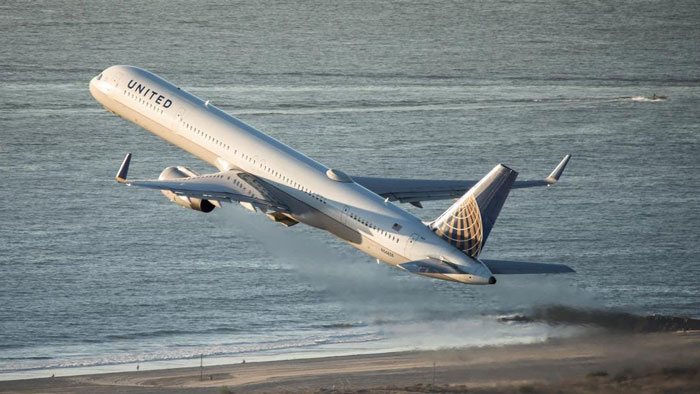
United Airlines operates longest transatlantic flight with 30% biofuel blend
A United Airlines Boeing 787, powered by World Energy’s low-carbon aviation fuel, took off from San Francisco International Airport (SFO) to Zurich Airport last Friday. The flight is part of an ongoing commitment to addressing climate change and follows on the heels of Governor Jerry Brown’s Executive Order for California to be net-zero carbon by 2045.
“This flight is one of many steps needed to reduce greenhouse gas emissions long-term and meet California’s ambitious climate goals,” said Bryan Sherbacow, chief commercial officer, World Energy. “World Energy is a pioneer and the global leader of commercial renewable jet fuel, in addition to providing low-carbon solutions to the ground transportation industry. We are excited to continue to provide low-carbon solutions that enable our customers to achieve their sustainability goals, and look forward to continuing this work with companies such as United at airports around the world.”
United Airlines operated flight 44 from its hub in San Francisco to Zurich with the carrier’s most fuel-efficient aircraft, via a blend of sustainable aviation fuel supplied by World Energy. United Airlines used 16,000 gallons of biofuel at a 30-70 blend with conventional jet fuel for the flight to Zurich, representing the longest transatlantic flight to date – and the longest flight by a U.S. airline to date – powered by a biofuel volume of this size.
“At United, we believe there is no point in setting challenging and ambitious goals without also taking tangible steps towards achieving them, especially when it comes to securing the health of our communities and our planet,” said Oscar Munoz, United Airlines’s chief executive officer. “While we’re proud to be the first U.S. carrier taking such an ambitious step, particularly when it comes to investing in renewable jet fuel, it is a distinction we look forward to sharing as the rest of the industry catches up and makes similar commitments to sustainability.”
The World Energy and United Airlines partnership started in 2016, with their inaugural flight from Los Angeles International Airport (LAX). Both companies plan to continue working to decarbonize the air transportation industry by increasing the number of flights using renewable fuel. World Energy sourced the petroleum jet fuel blend for the flight from Chevron Corp., the largest provider of jet fuel at SFO, with renewable jet fuel feedstock from Agrisoma. Chevron also arranged the supply logistics to move the blended product to United Airlines at SFO.
United Airlines said it has set a goal to reduce its greenhouse gas emissions by 50% over the next few decades to help reduce its carbon footprint and its dependence on fossil fuels. United Airlines said that halving its emissions by 2050 from 2005 levels as projected would be the equivalent of removing 4.5 million vehicles from the road each year or the total number of cars in New York City and Los Angeles combined.
The third-largest U.S. air carrier will invest more than USD2 billion a year in more fuel-efficient aircraft, expanding its use of low-carbon biofuels in daily flights and implementing ways to better conserve fuel.
“This is not only good for the environment but guards against oil price instability,” said Aaron Stash, United Airlines’ manager of environmental strategy and sustainability.
Fuel costs account for a major portion of airlines’ expenses, and rising oil prices over the past year have eaten into industry profits.
Chicago-based United Airlines said it wants to be “the world’s most environmentally conscious airline.”
In 2015, it invested USD30 million in California-based Fulcrum BioEnergy, with an agreement to help the household trash-to-biofuel maker install refineries near its hub airports and purchase roughly 1 billion gallons of biofuel.
Overall, the airline industry is still lagging behind its own climate targets on transatlantic routes despite steps to improve fuel efficiency, according to a study by the International Council on Clean Transportation.









